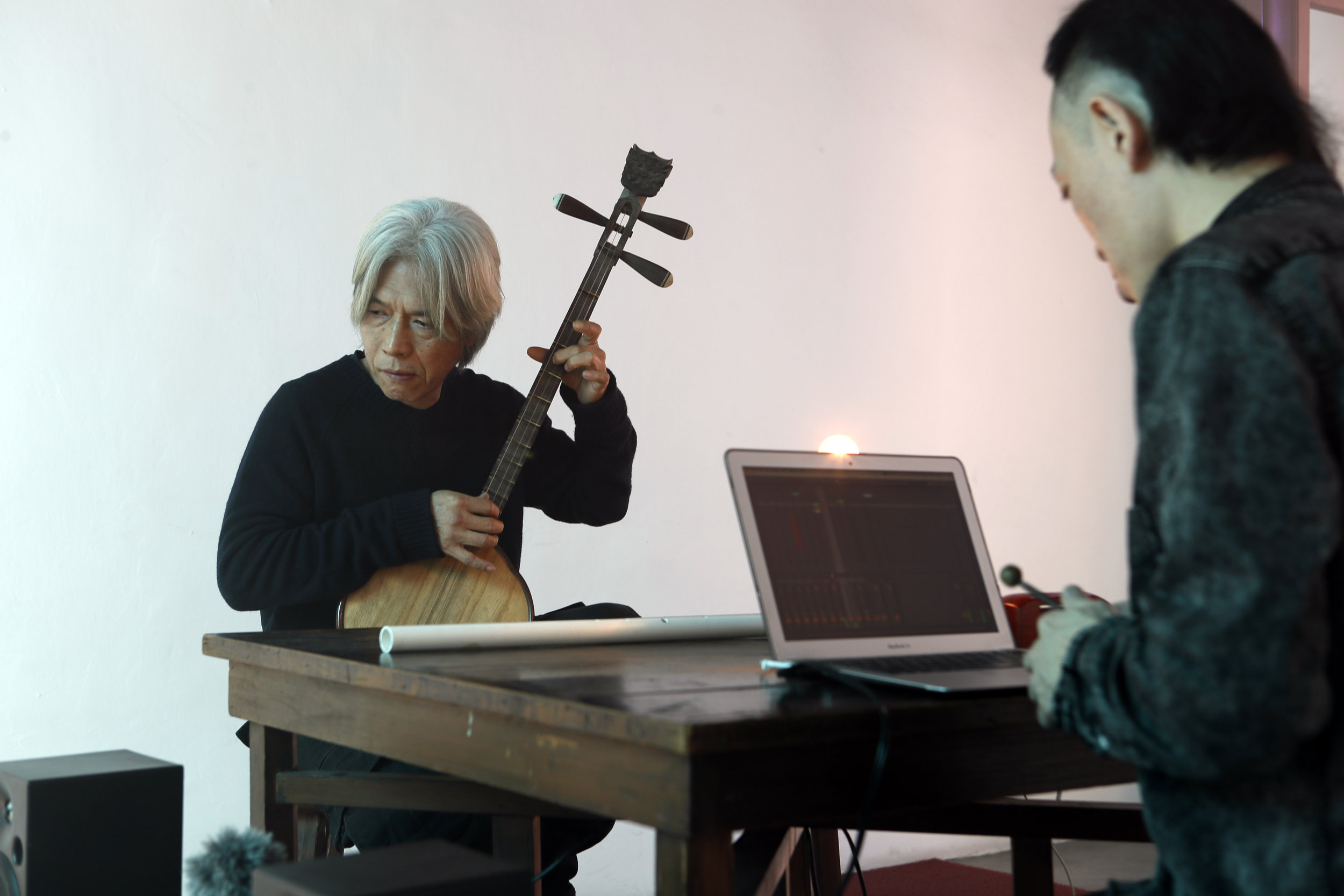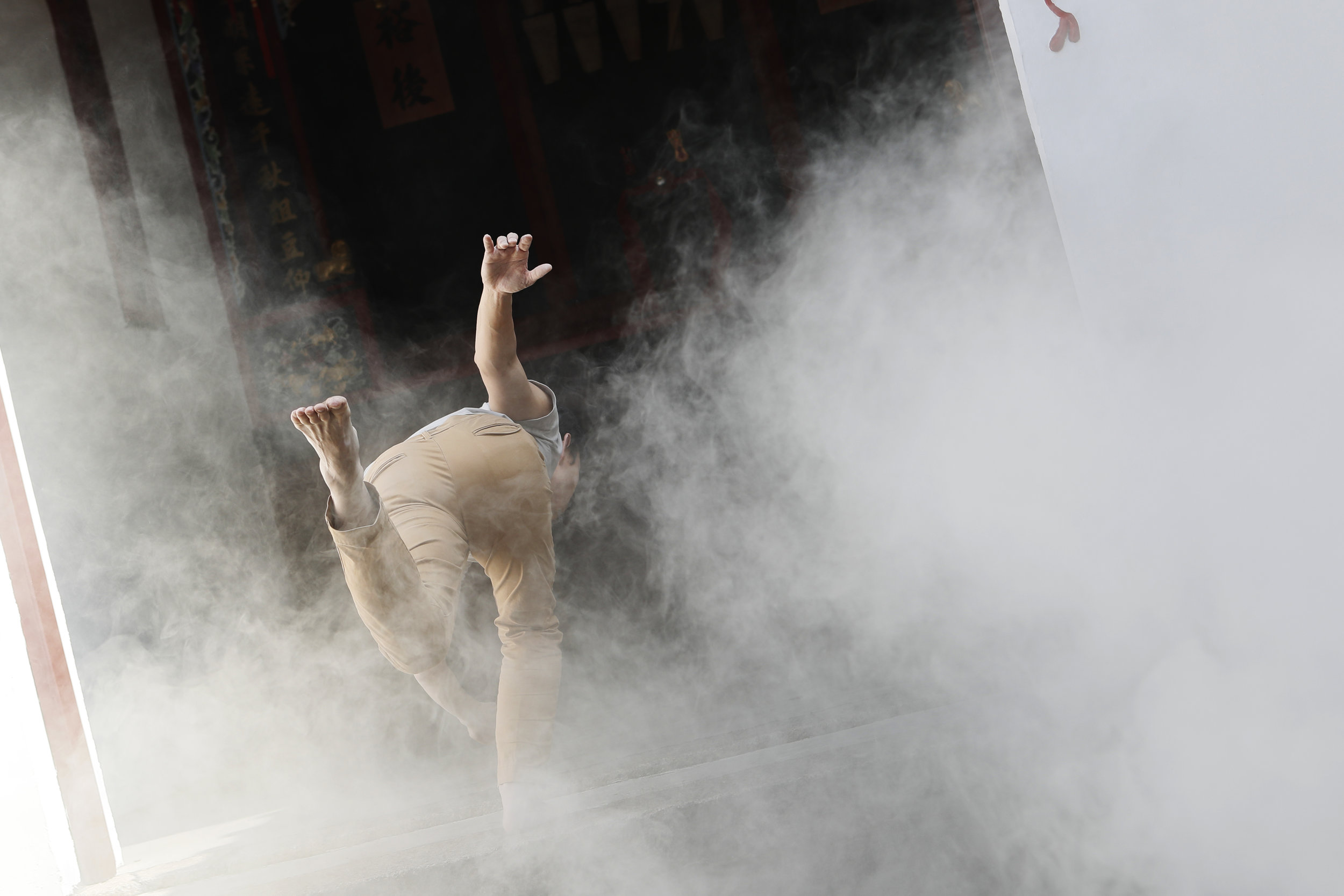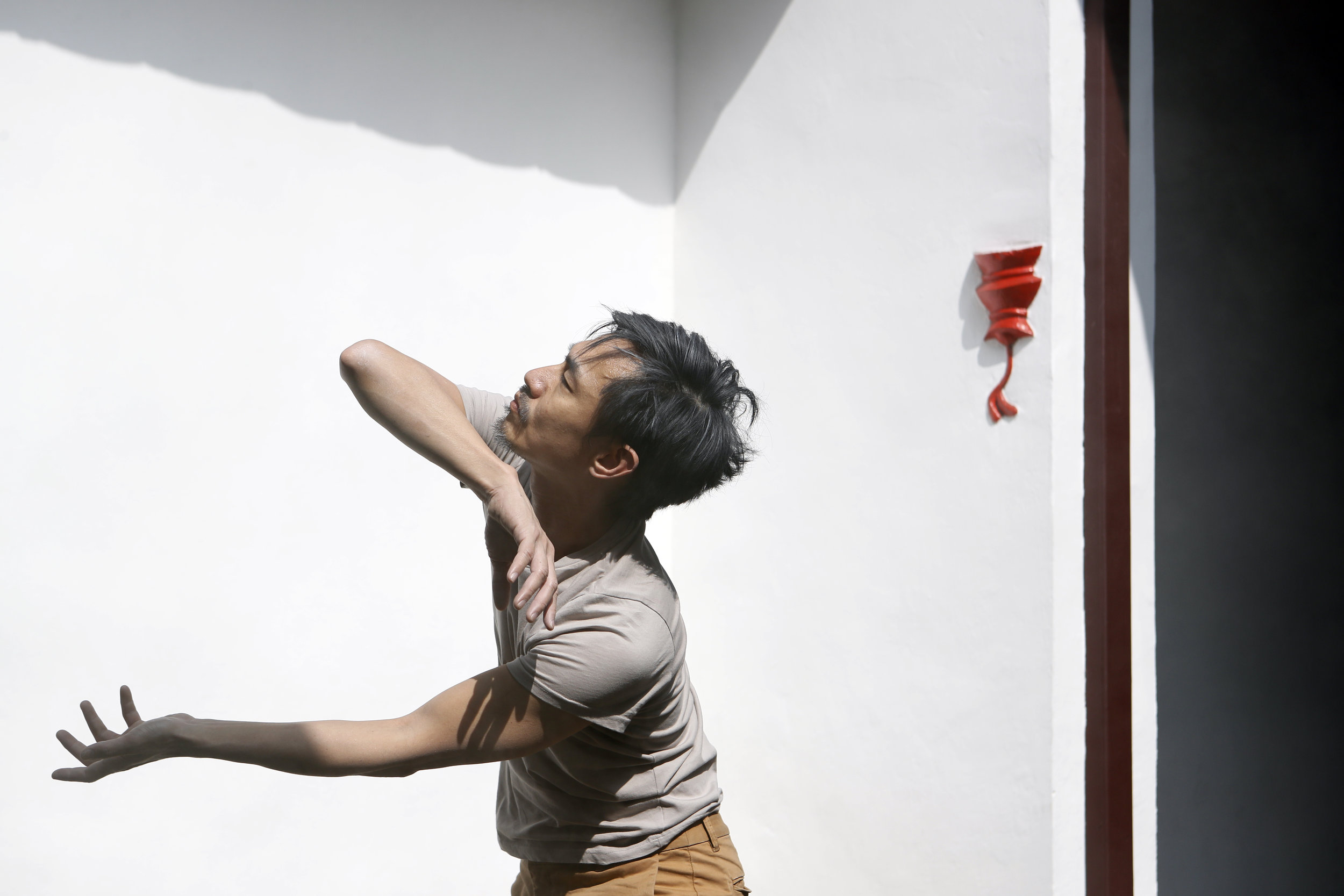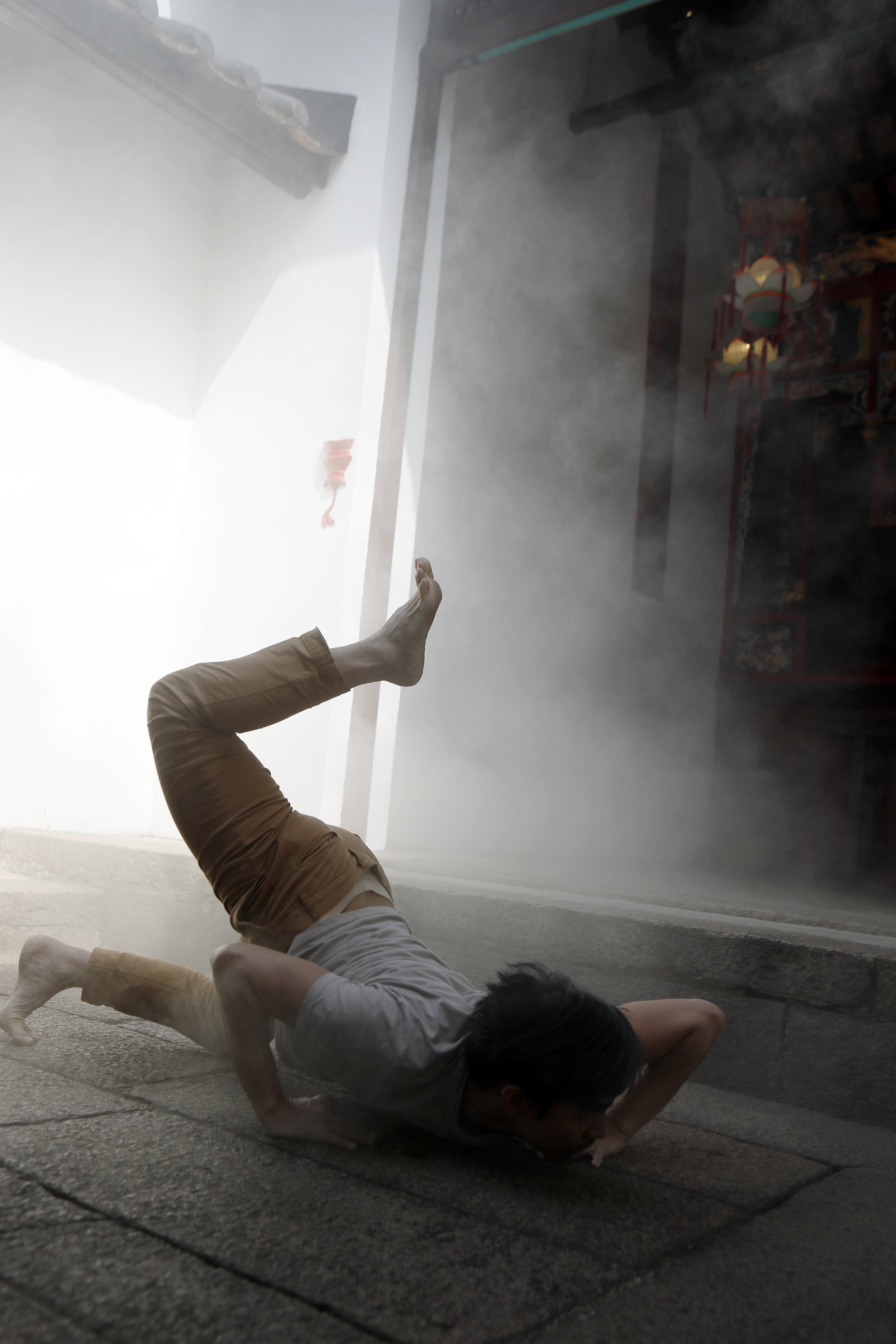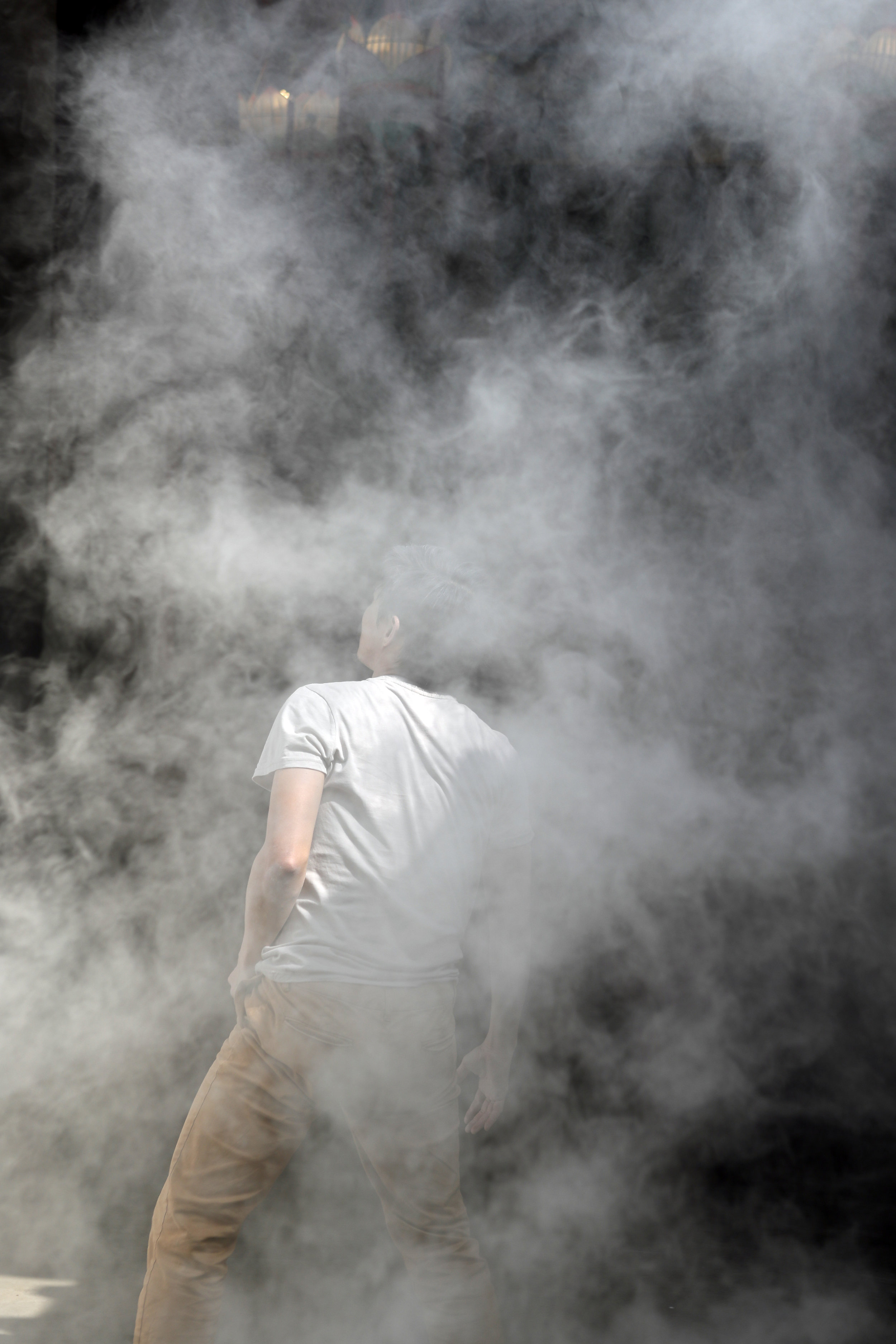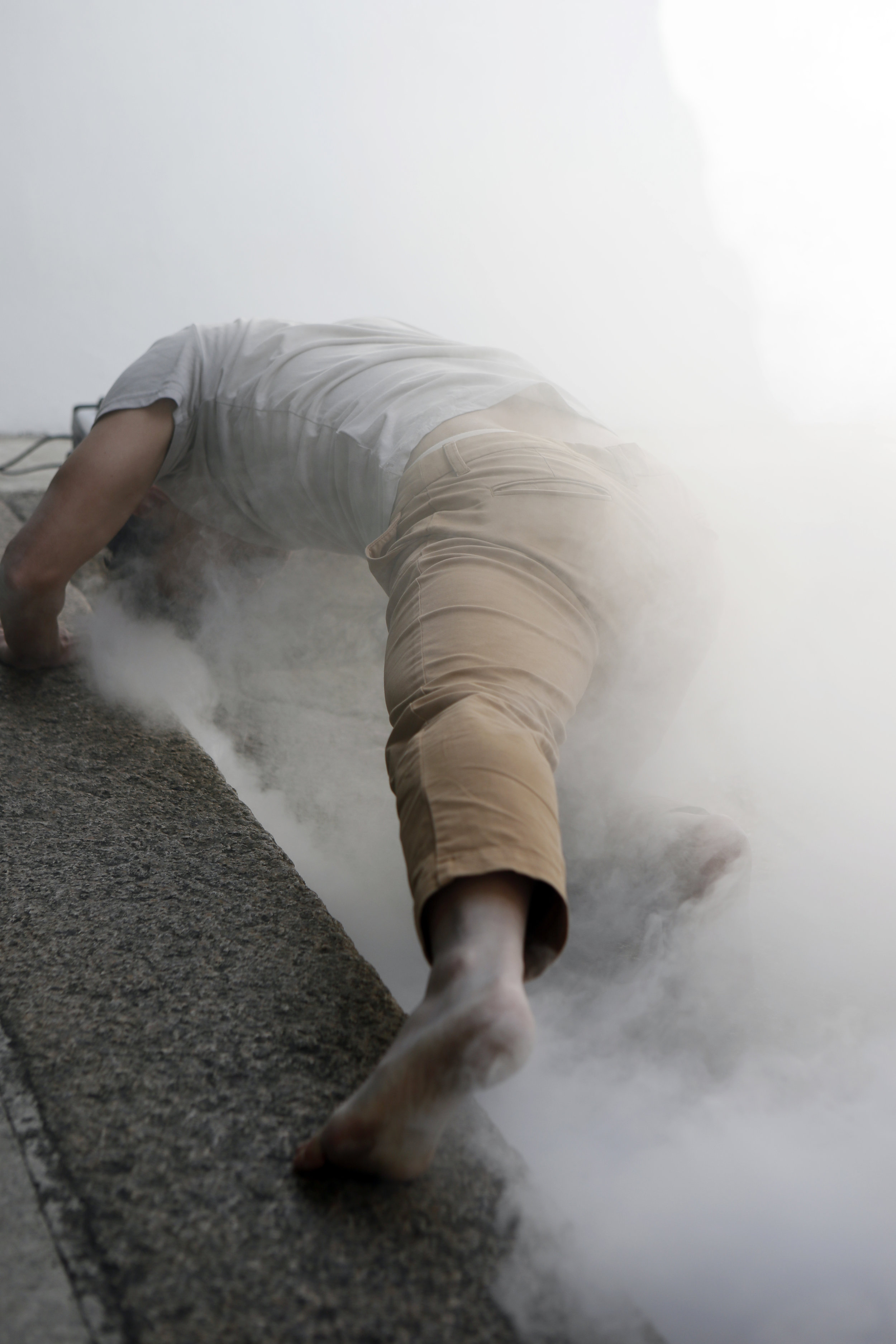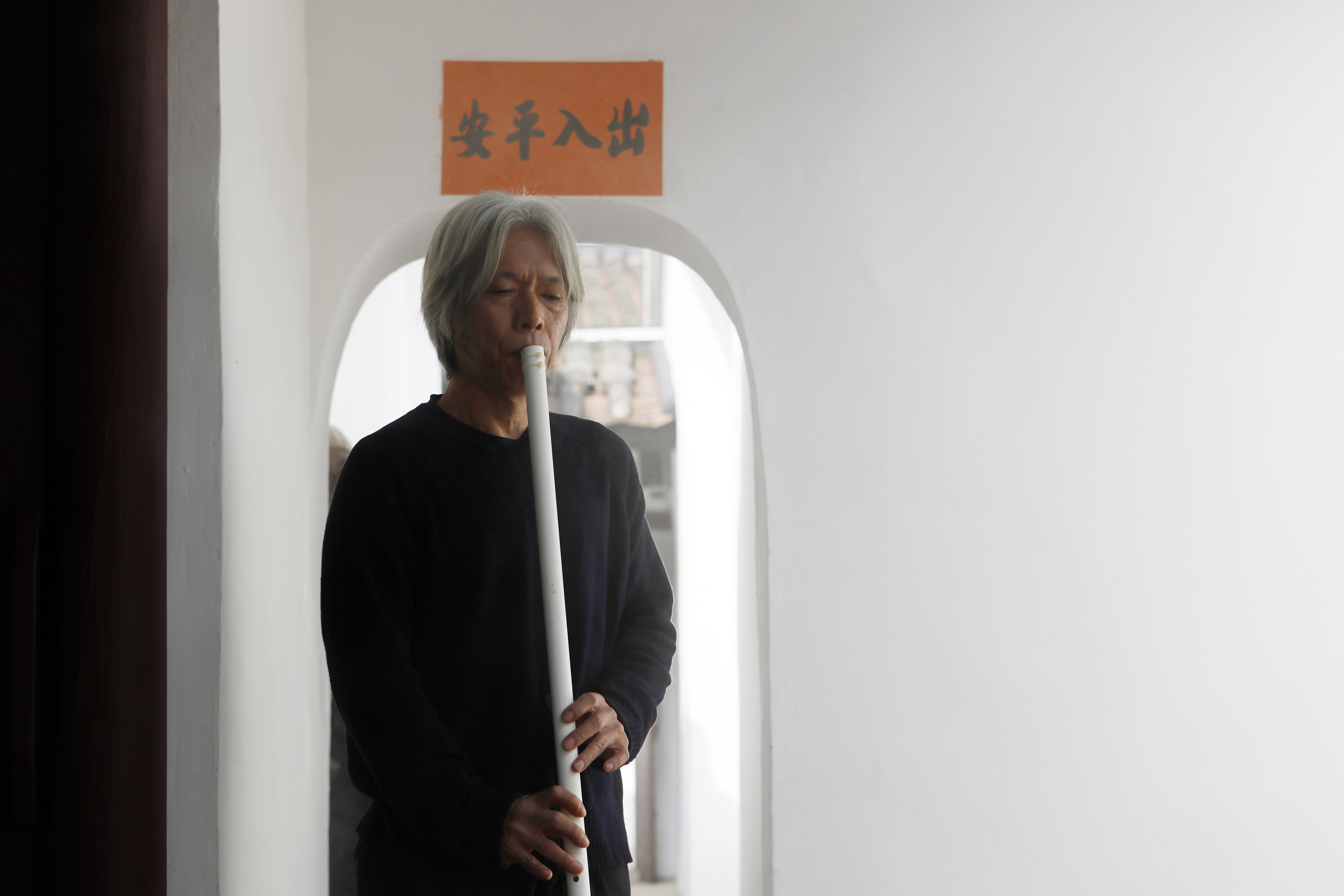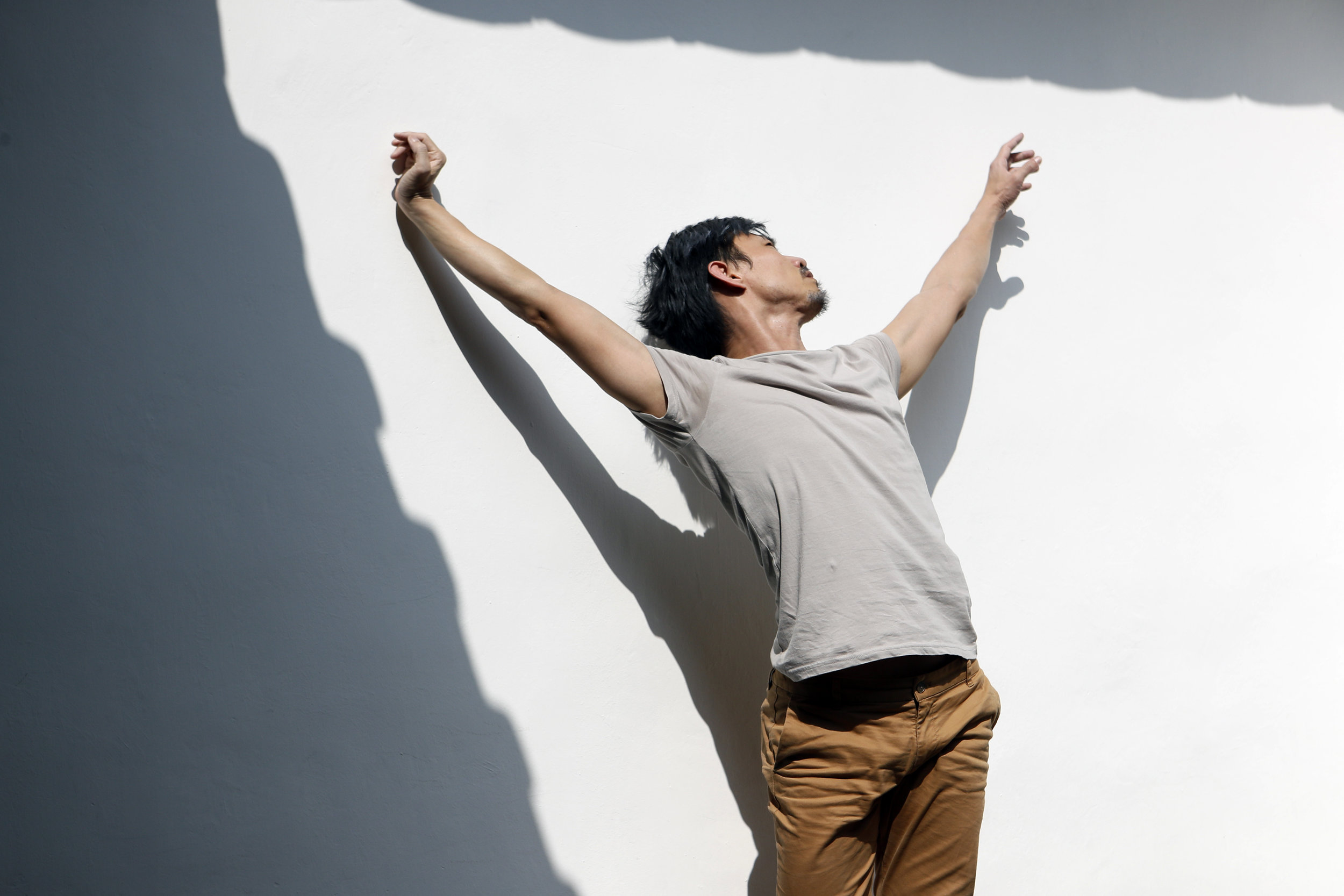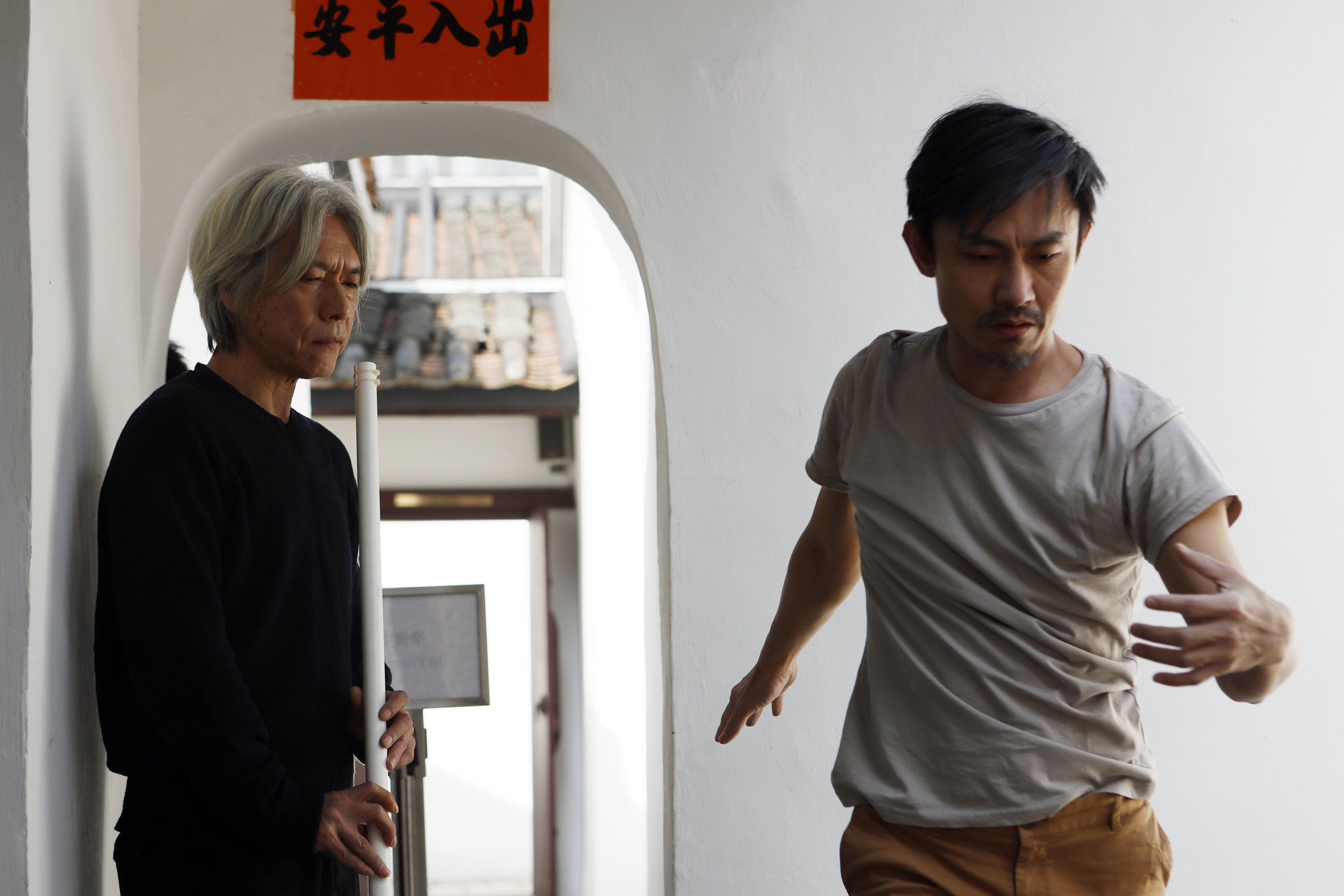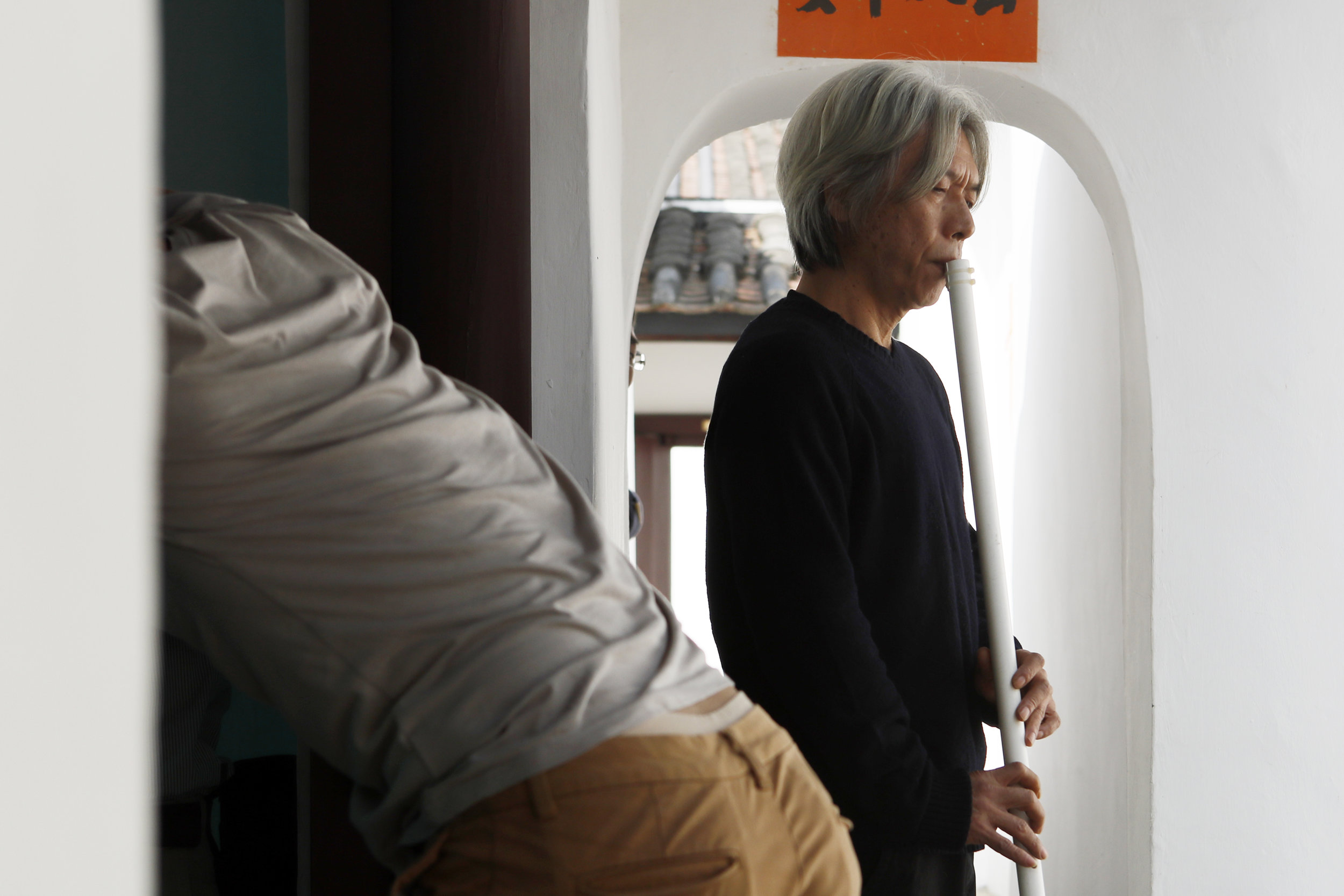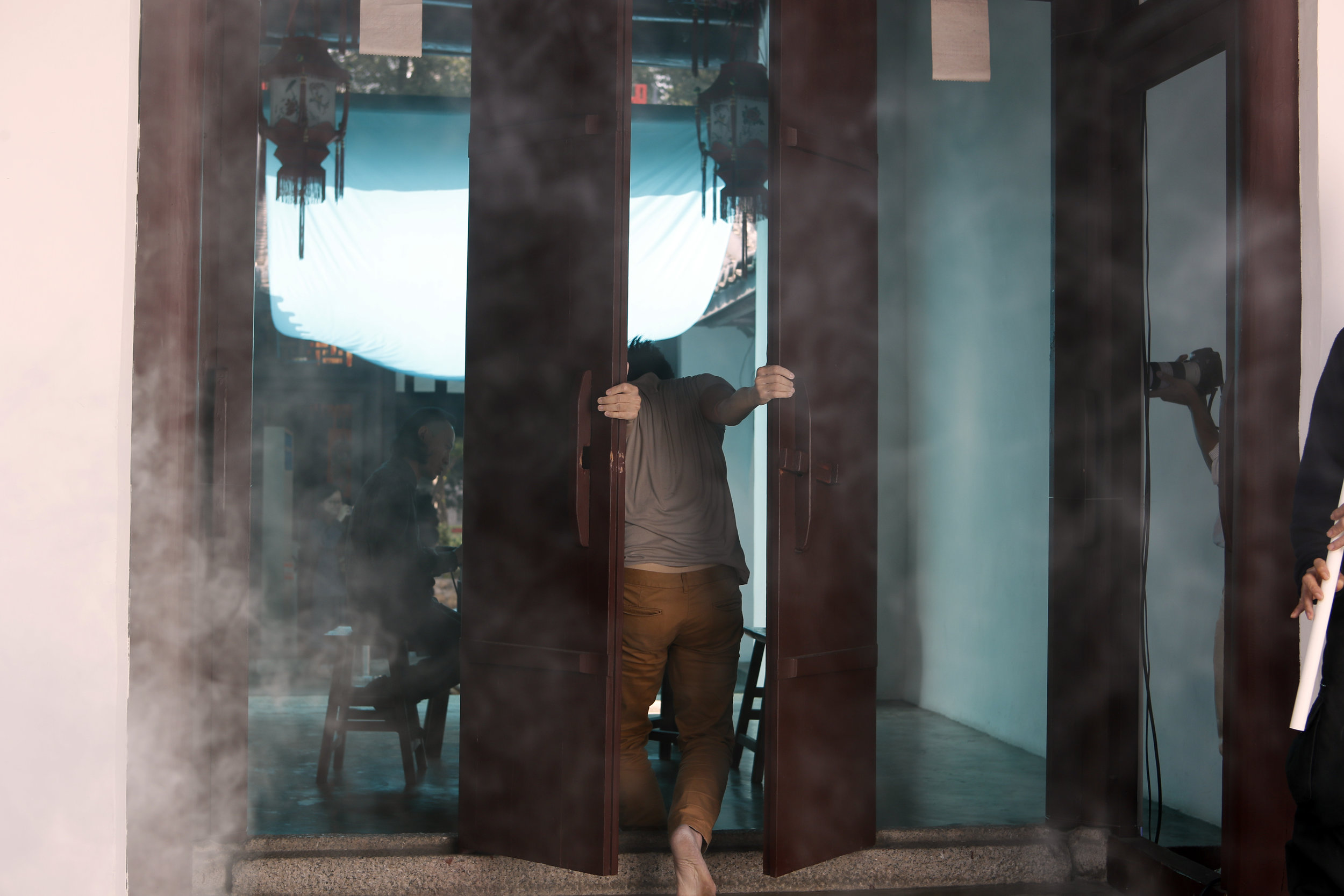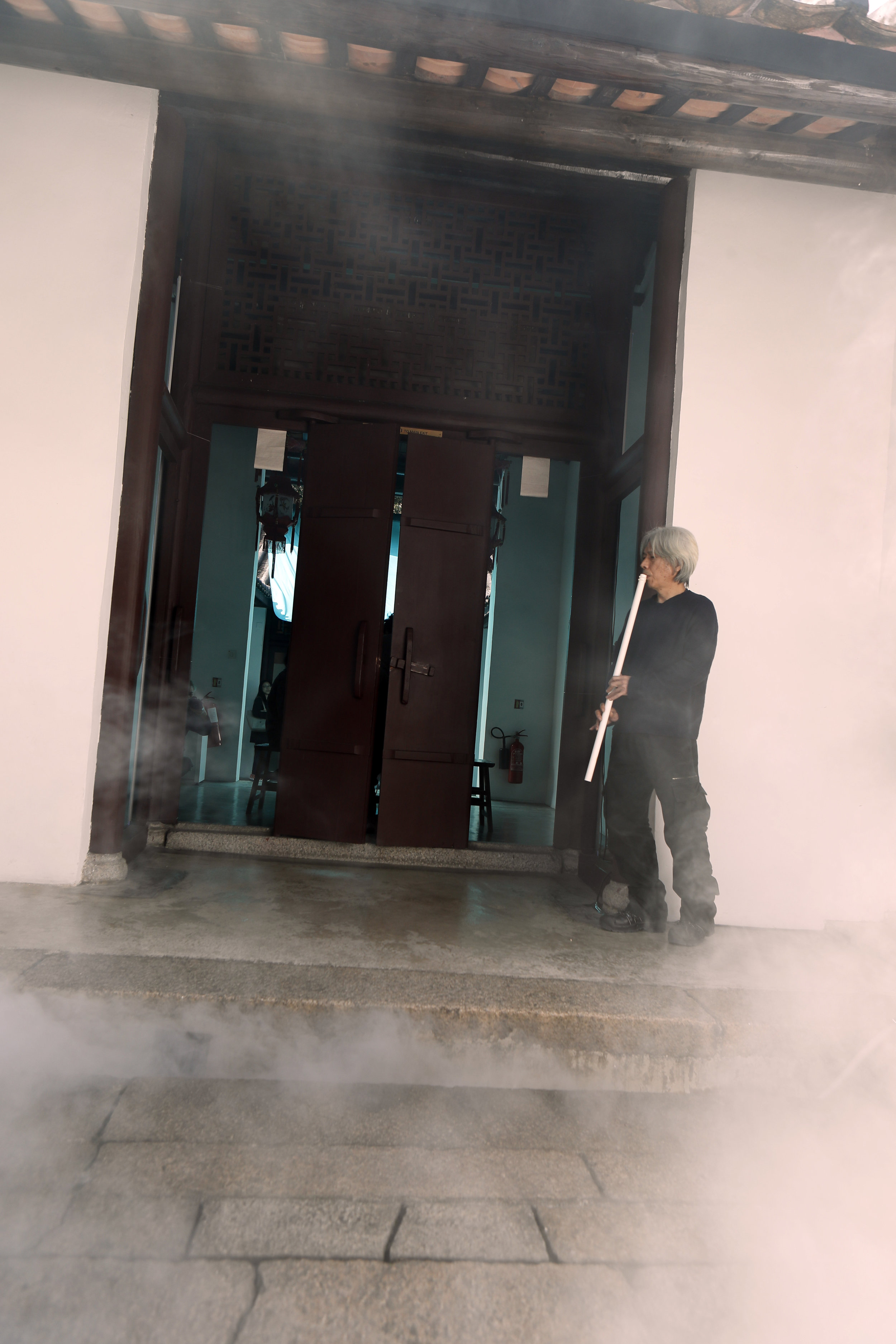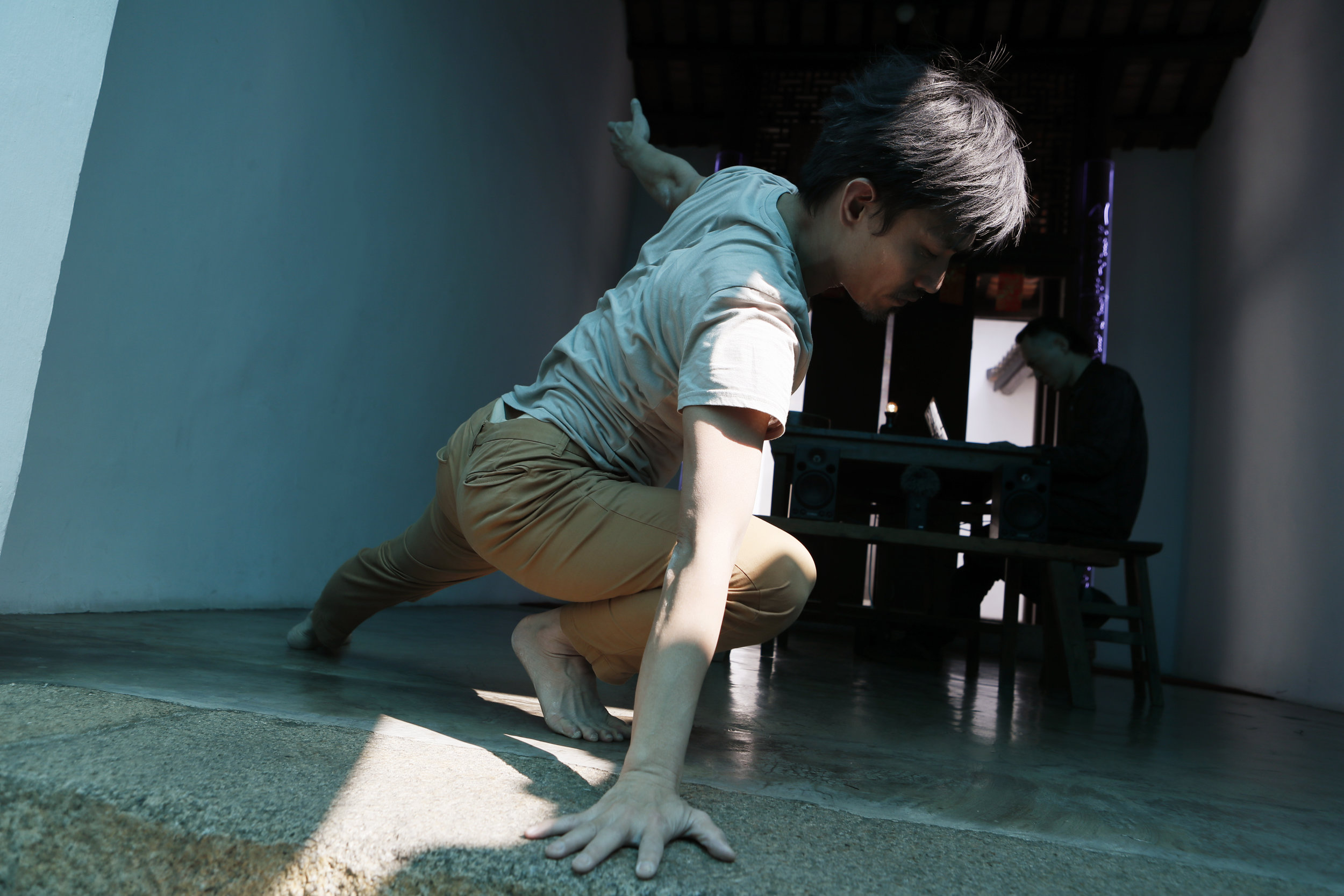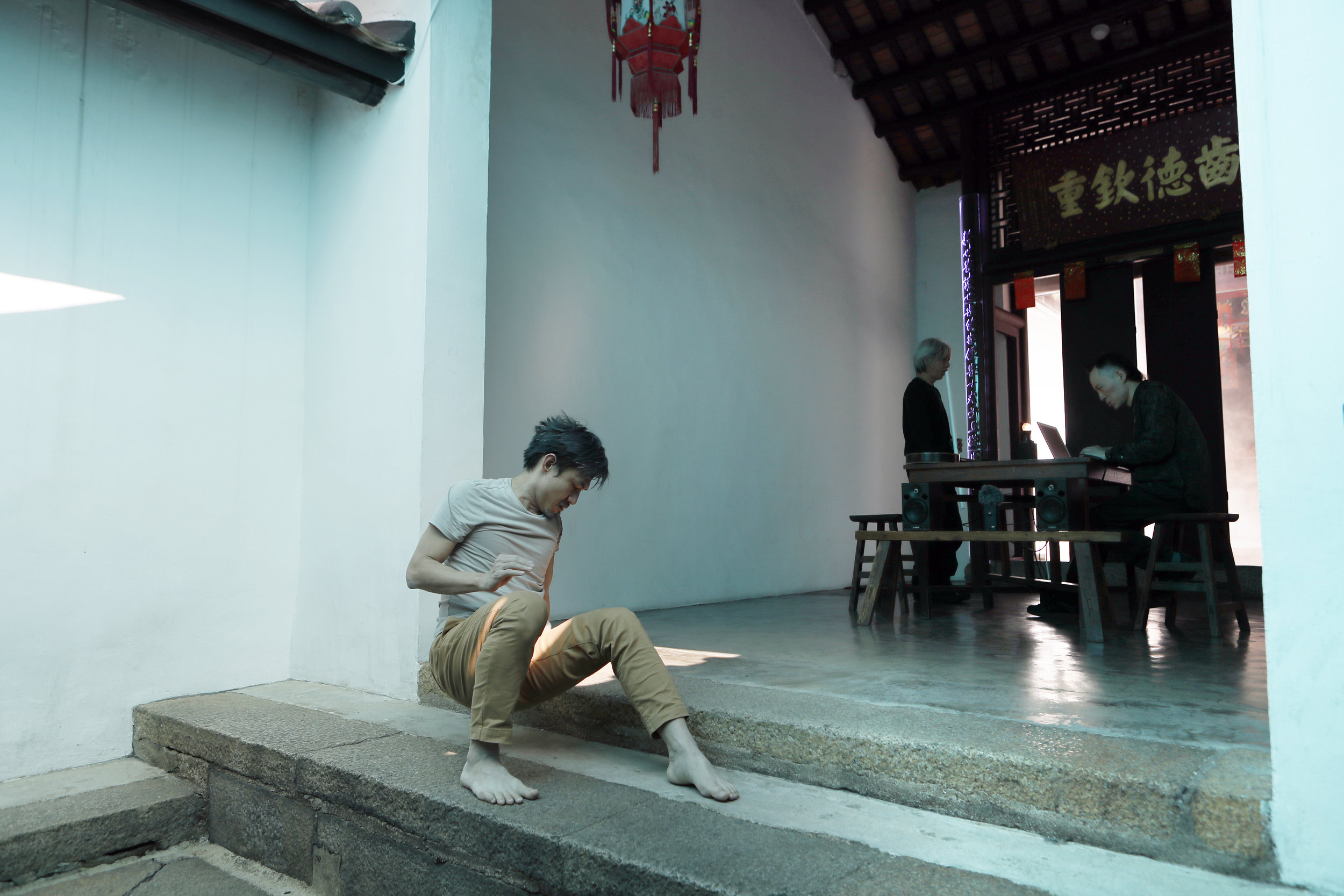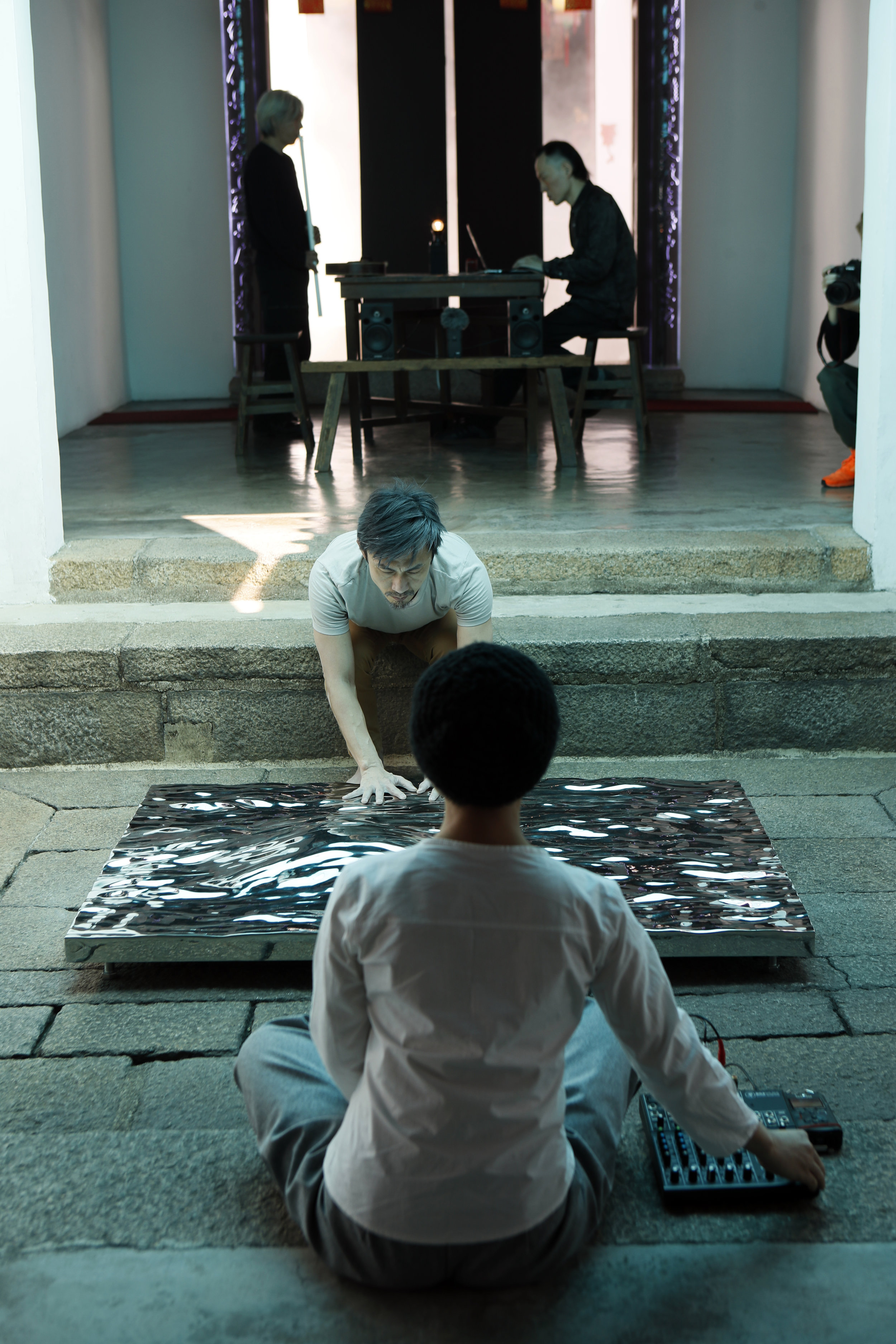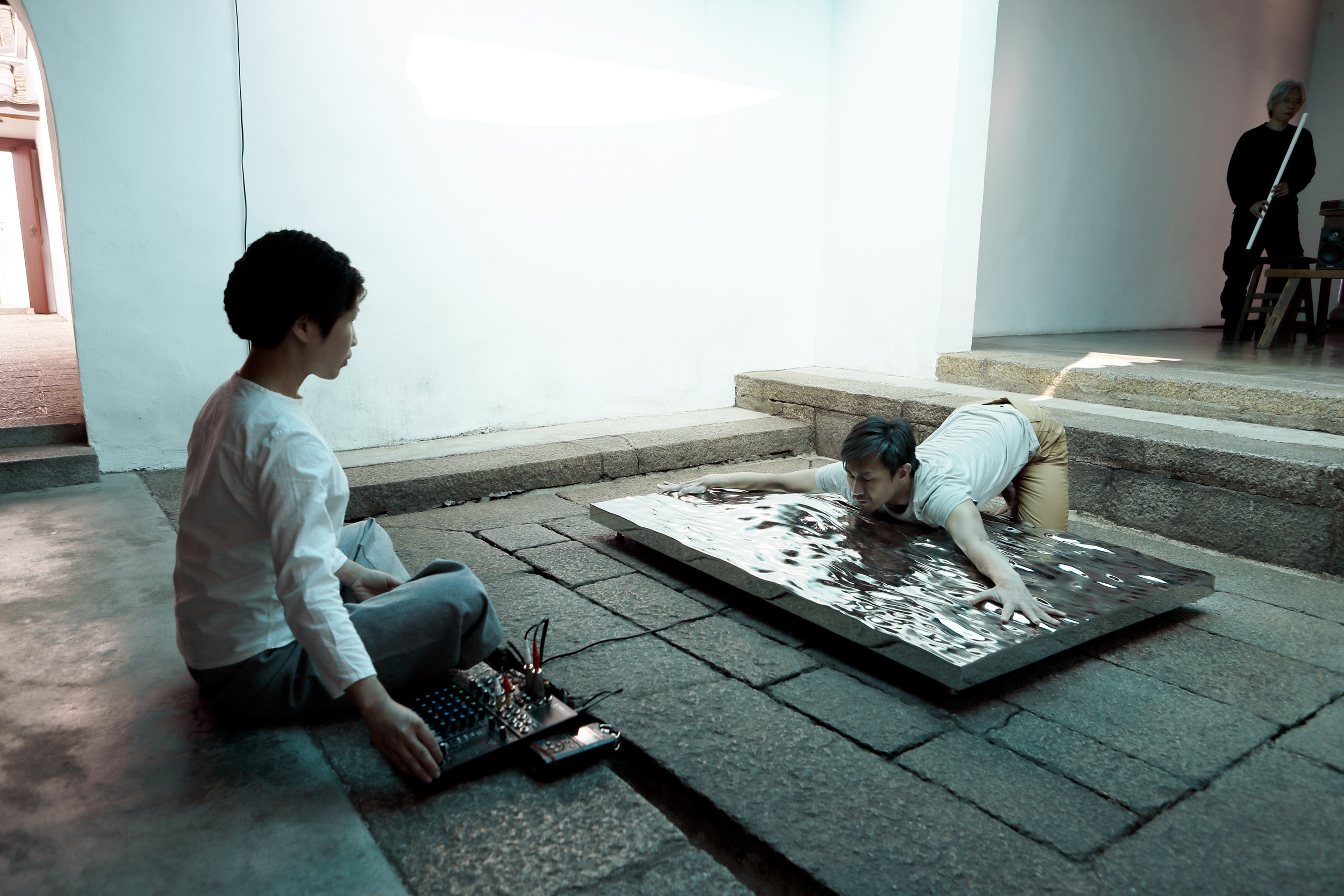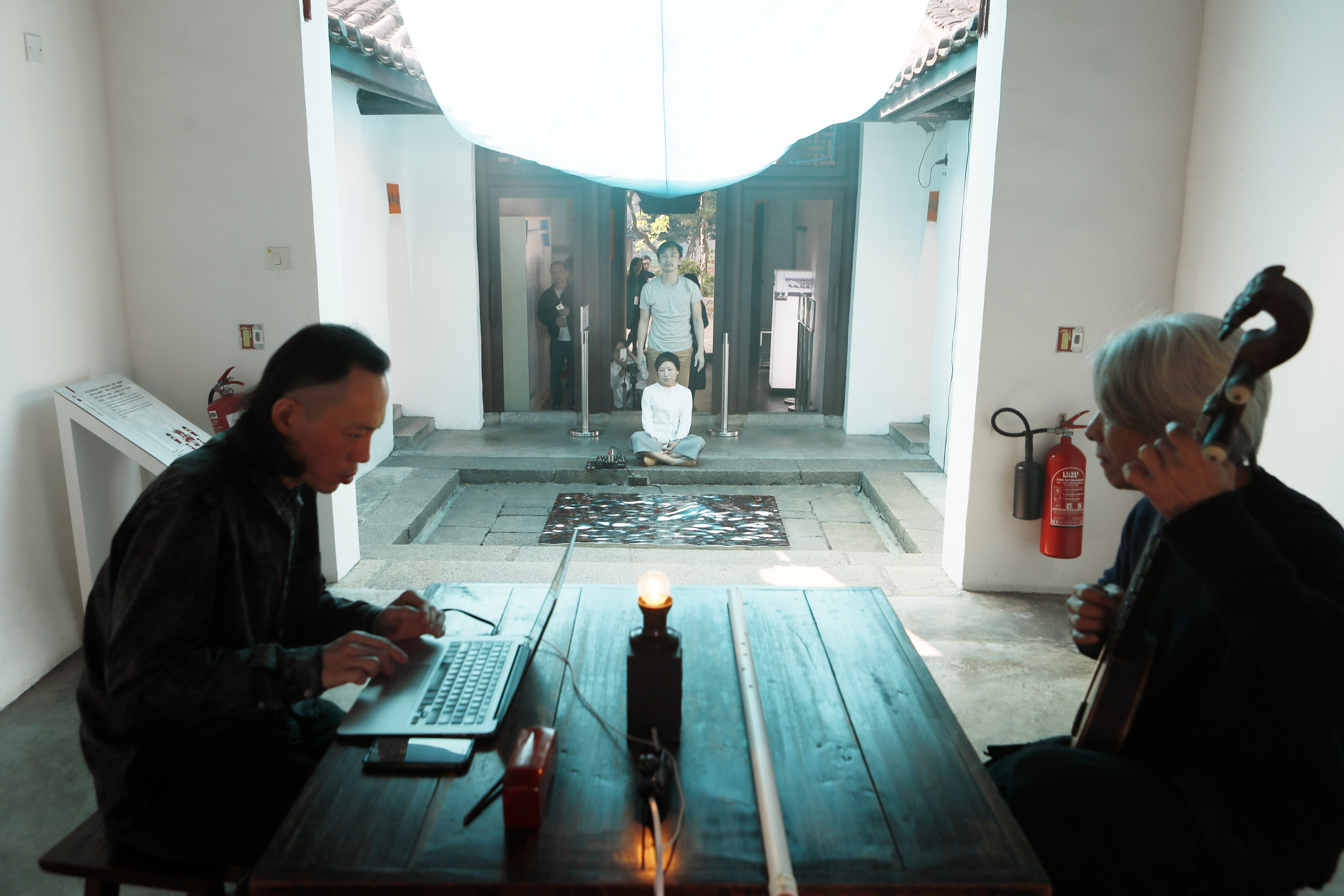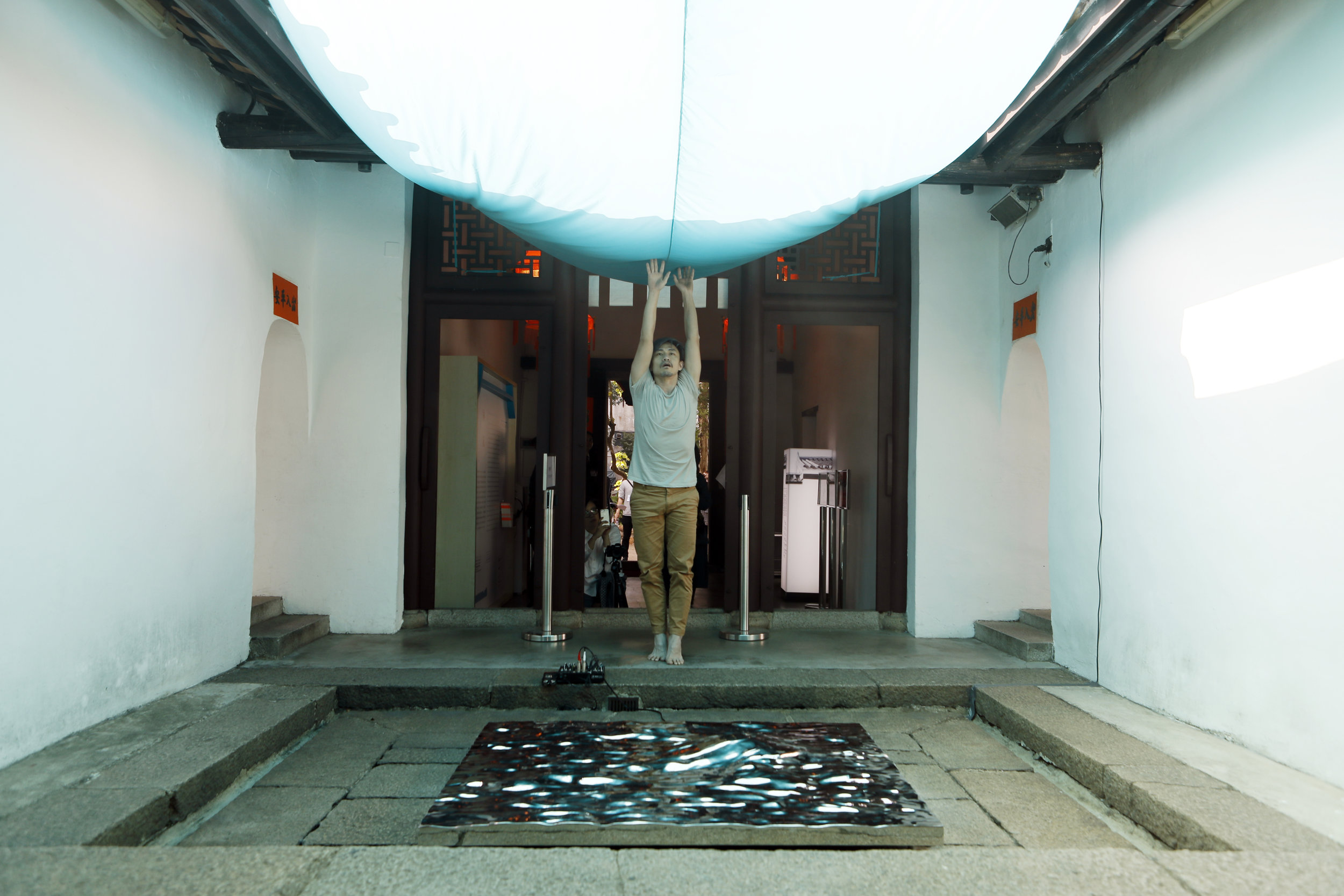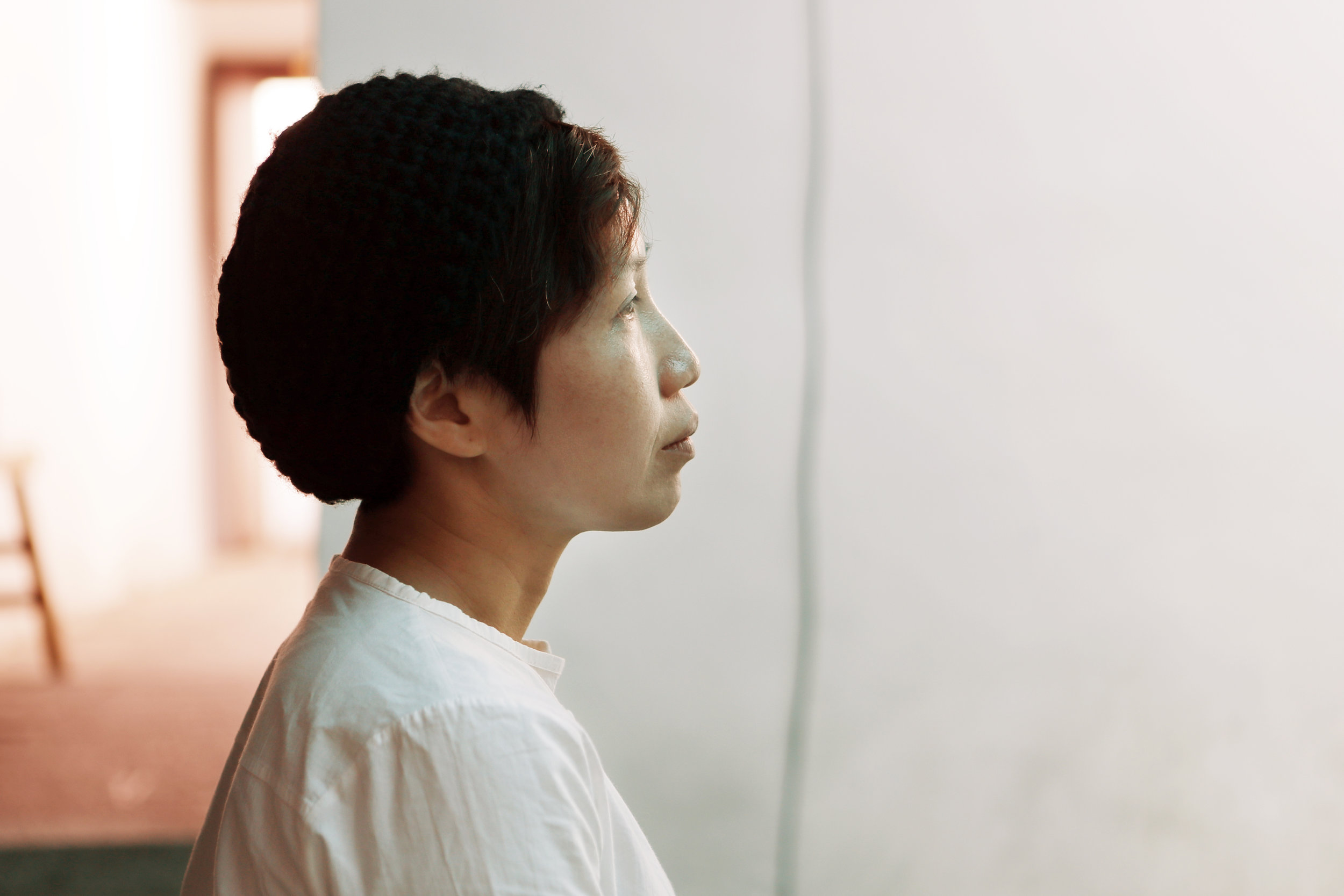‘Hi! Houses’
Jaffa Lam x Sam Tung Uk Museum
「邂逅!老房子」
林嵐 X 三棟屋博物館
關於歌詞,我選用宋詞作編排,和時代遷徒有關。
Regarding the lyrics, I chose to re-arrange some Song dynastic lyrics, as they are related to migration in the change of times.
特別強調,我是在用現成物(Ready-Made)拼貼: 宋詞_浣溪沙,而不是作詞。特選「浣溪沙」詞牌,和水、洗有關。
I must emphasize that I am making a collage with Ready-made (i.e. the Song dynasty lyrics to the Melody of Sandy Creek), not writing my own lyrics. The Melody of Sandy Creek was chosen because it is related to water and washing.
南音,只是一種籍口,一種思鄉的情懷。2014年暑假在檳城聽到東南亞的歌聲,那不是正統的南音,只是覺得很熟悉,可能和我的移民家族有關,父母都是來自東南亞的僑民。後來找Steve 來看看能不能做得到那種感覺的聲音。首先請李文生用客家話將選詞哼了很多遍,達到思古之意。然後,文生聽著自己哼的聲音記錄,再彈以及吹奏,後來經Steve 的編整,才變成那首似是疑非的曲調。事後文生說,他其實是在唱客家山歌的慢板。是否真正的南音,其實並不重要。
It is just an excuse to feel nostalgic to select Naamyam as the type of music. In the summer of 2014, I listened to some South East Asian singings in Penang. They were not traditional Naamyam, but a familiar sound. Perhaps it is because I came from a migrant family. Both parents were Chinese migrants in South East Asia. I asked Steve to help create the same type of sound that gives me a nostalgic feeling. We invited Lee Man-sang to sing the re-arranged lyrics in Hakka dialect over and over again. Man-sang then listened to the recording of his own slow humming, and played different instruments to it. Steve then re-arranged and mixed those sounds to become one piece of hybrid music. After we made the music, Man-sang said that he was really singing Hakka folk song in a very slow tempo. It doesn’t matter whether the music is truly Naamyam or not.
三首詞的排列是我對三棟屋由興盛至凋空回望的無限傷感。 由實到虛,由外到內,由朝到暮,由樂到幽。
頭兩句是:《浣溪沙·常山道中即事》是南宋詞人辛弃疾寫的一首詞。我喜歡詞中形容耕田的美好和村莊生活的快樂。
北隴田高踏水頻。西溪禾早已嘗新。隔墙沽酒煮纖鳞。
忽有微凉何處雨,更無留影霎時雲。賣瓜聲過竹邊村。
接著的兩句是來自經歷南北宋遷徙的女詞人,李清照的浣溪沙。她曾以此詞牌寫了四首,我覺得這首最配合這次計劃:浣溪沙 ·小院閒窗春色深
小院閒窗春色深,重簾未卷影沈沈,倚樓無語理瑤琴。
遠岫出雲催薄暮,細風吹雨弄輕陰,梨花欲謝恐難禁。
最後一首,來自北宋晏殊的浣溪沙·一曲新詞酒一杯,表達我以三棟屋故人身份重遊故地,對故人和舊事的懷愐。
一曲新詞酒一杯,去年天气舊亭臺。夕陽西下幾時回?
無可奈何花落去,似曾相識燕歸来,小園香徑獨徘徊。
The alignment of the three sets of lyrics reflects my sentiments towards Sam Tung Uk. My immense sadness seeing the place changed from thriving to empty, and looking back. The sequence is from tangible to intangible, form external to internal, from dawn to dusk, and from bliss to melancholy.
The first two lines is from “The Regular Happenings Along the Mountain Route of the Melody of the Sandy Creek”, written by Xin Qiji, a Song Dynasty lyricist. I like the way it describes the good life in the farms and happy times in the village.
Farmers in the northern knolls work hard in their fields.
Rice at the western creek is ready to harvest.
My neighbour pours wine to cook the skinny fish.
The next verse came from the version of The Melody of Sandy Creek written by female lyricist Li Qingzhao, who experienced migration as she lived in the times of change between the Southern and Northern Song dynasties. She wrote four different sets of lyrics for this melody. I think this particular one is most suitable for our project – The Melody of Sandy Creek: The Idle Window of Courtyard in Deep Colour of Spring
The idle window in the small courtyard casts a deep colour of spring.
Heavy curtains, undraped, reflecting sombre shadows.
Leaning silently against the wall, I tune my mandolin.
The last verse came from An Zhu of the Northern Song Dynasty, his version of The Melody of Sandy Creek: A Song of Lyrics and a Goblet of Wine. It expresses my role as an old timer from Sam Tung Uk revisiting the house, and feeling nostalgic about the people who lived there and things that happened there in the past.
With a song of lyrics and a goblet of wine,
I sit at the same pavilion in the same weather as last year.
The sun is setting, but when will it return?


